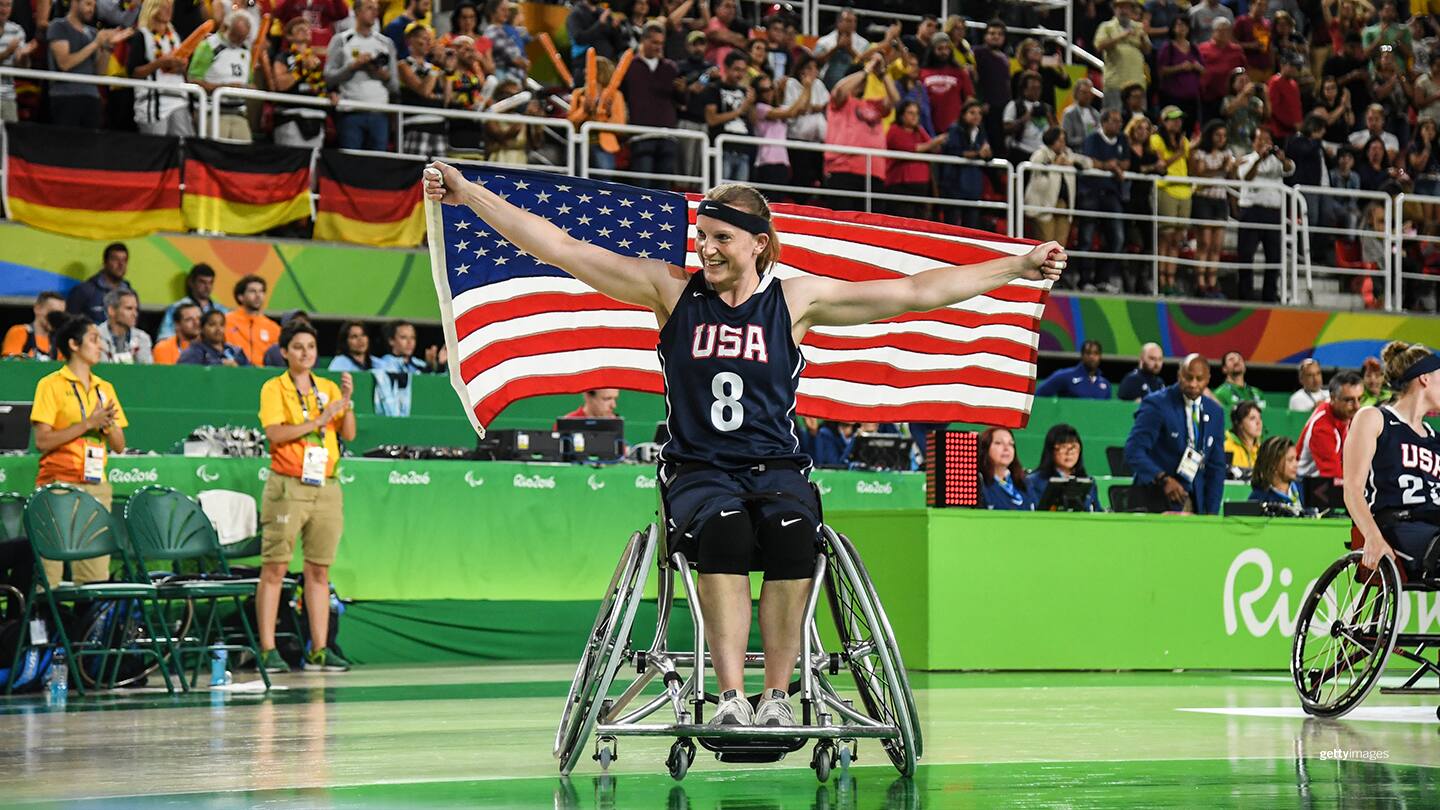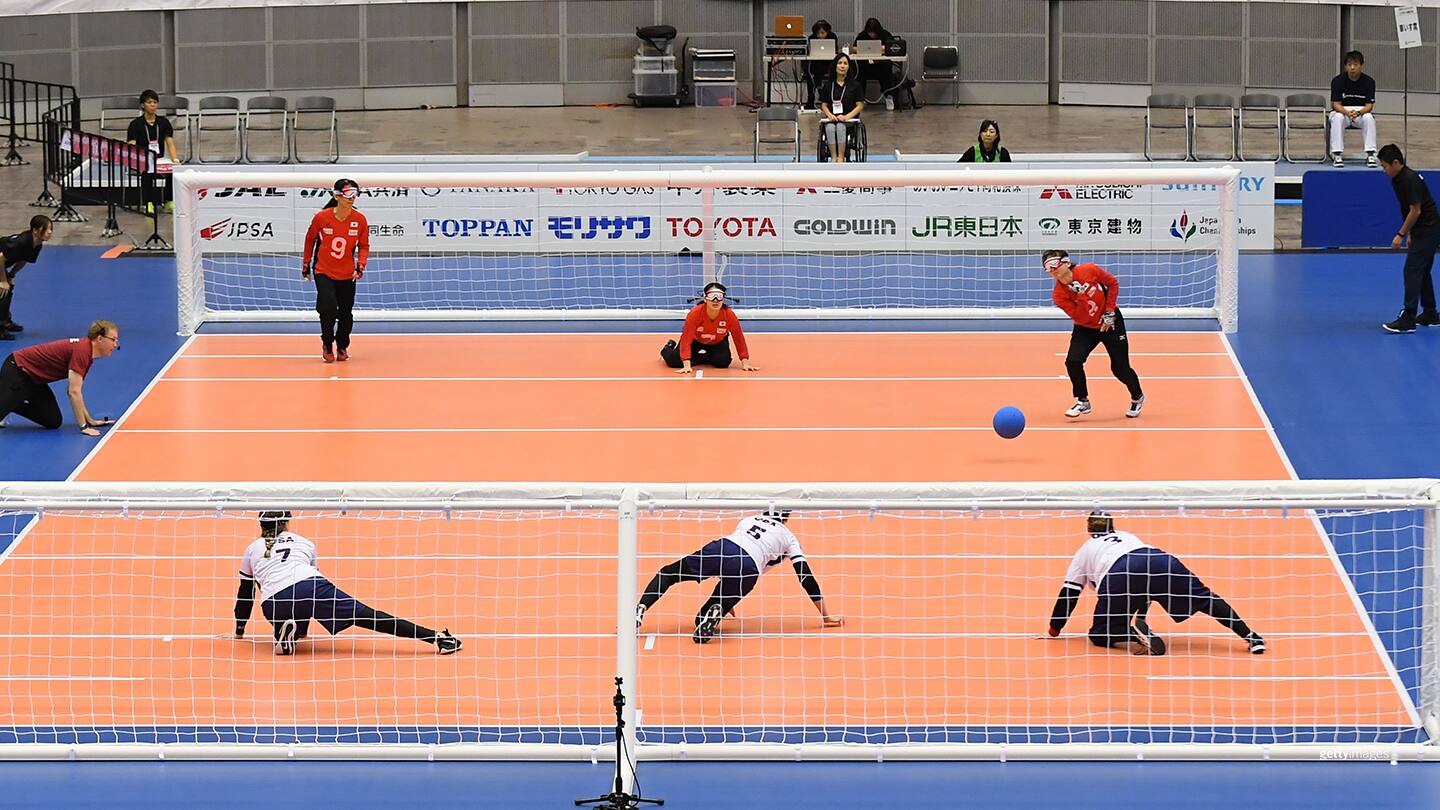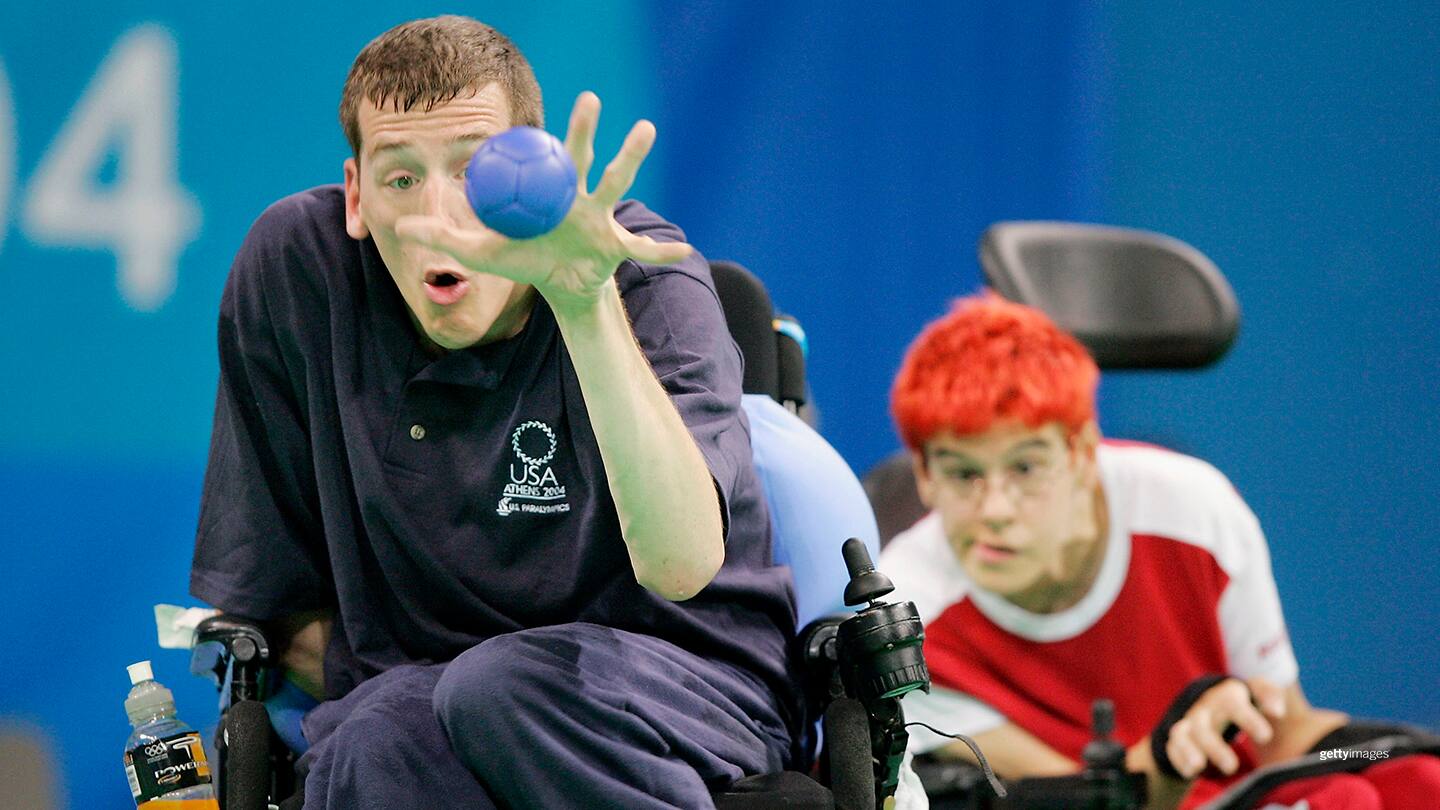
Missing The Olympic Games? Find The Perfect Paralympic Sport For You
by Todd Kortemeier

Ryley Batt (Australia) in action against Chuck Aoki (L) and Eric Newby (R) during the men's wheelchair rugby gold-medal match at the Paralympic Games Rio 2016 on Sept. 18, 2016 in Rio de Janeiro.
Never fear, Olympic fans. The Olympic Games Tokyo 2020 may be in the books, but the Paralympic Games are just around the corner.
Thanks to a record amount of coverage from NBC across its platforms, fans will be able to watch the Paralympic Games just like they followed its Olympic counterpart. But that also presents a bit of a dilemma. With so many events on, those fans unfamiliar with the Paralympic program may not know which sports to start with.
Here’s a closer look at the Paralympic program to help you make an informed choice.

Natalie Schneider celebrates after the women's wheelchair basketball gold-medal match against Germany at the Paralympic Games Rio 2016 on Sept. 16, 2016 in Rio de Janeiro.
For fans of archery, badminton, cycling, equestrian, soccer, judo, canoeing, triathlon, weightlifting (known as powerlifting on the Paralympic program), rowing, shooting, volleyball, swimming, table tennis, taekwondo, basketball, fencing, rugby and tennis, you’re in luck. All those Olympic sports are also featured on the Paralympic program, just with some adaptations for the athletes. Some sports have more unique adaptations than others.
The forms of basketball, fencing, rugby and tennis presented at the Paralympic Games, for example, are all wheelchair-based events. Wheelchair rugby should appeal to not only fans of rugby but also hockey or American football fans who would enjoy the fast-paced action and hard hits common to the sport known as “murderball.” Team USA is the defending silver medalist.
These wheelchair sports test different skills as athletes are limited to using their upper body. In wheelchair fencing, for example, competitors’ chairs are locked in place as they duel. And in wheelchair tennis, players must quickly adjust their chair with one hand while getting in position to hit the ball with the other.
Powerlifting is more than just a name change. It’s an entirely different form of weightlifting that tests an athlete’s upper body strength. Anyone who bench presses as part of their workout routine will enjoy seeing how much weight these athletes can lift, sometimes well over 600 pounds.
For volleyball fans, their sport is played under almost the exact same rules as Olympic volleyball with one notable difference. The players all must remain seated in contact with the court. The net of course is lowered as well. Other than that, fans can expect to still see all the sets, digs and kills that they did at the Olympic Games. While the U.S. men have yet to medal, the U.S. women have won medals at every Games since women’s volleyball debuted in 2004 and are fresh off their first gold from the Paralympic Games Rio 2016.
Two of these carryover sports are brand-new to the Paralympic program. Badminton and taekwondo each make their Paralympic debuts in Tokyo. Dropping off the program are sailing and soccer 7-a-side, although in the case of the latter the 5-a-side event will continue. Team USA did not qualify a 5-a-side team for Tokyo.

The U.S. women's goalball team in action aainst Japan during the Tokyo 2020 Paralympic Test Event on Sept. 29, 2019 in Chiba, Japan.
Any fans of handball who missed seeing Team USA at the Olympic Games should check out goalball. One of two unique Paralympic sports that has no Olympic equivalent, goalball is a sport specifically for visually impaired athletes. The concept is simple; two teams of three try and throw or roll ball into the other team’s net.
But there are a couple wrinkles that make goalball an exciting watch and unlike anything else. All athletes wear eyeshades that completely block out their sight to ensure all players have the same level of vision. The ball contains bells so that players can only hear the ball coming. And on a court the size of a volleyball court, athletes don’t have much time to react as the ball is closing in on the net.
The U.S. is traditionally one of the strongest teams in goalball. Team USA has the most medals all-time since goalball’s Paralympic debut in 1976 for men and 1984 for women. Both men’s and women’s teams medaled five years ago in Rio.

Timothy Hawker competes at the Paralympic Games Athens 2004 on Sept. 23, 2004 in Athens.
The other unique Paralympic sport is boccia. Related to other sports such as bocce or lawn bowling, boccia has been on the Paralympic program since 1984. Fans of an Olympic Winter Games sport, curling, should find plenty to like as competitors take turns trying to get their ball closest to a target ball called a jack. Unfortunately for Team USA fans, the U.S. won’t be fielding a boccia team in Tokyo.
Todd Kortemeier is a sportswriter, editor and children’s book author from Minneapolis. He is a contributor to TeamUSA.org on behalf of Red Line Editorial, Inc.